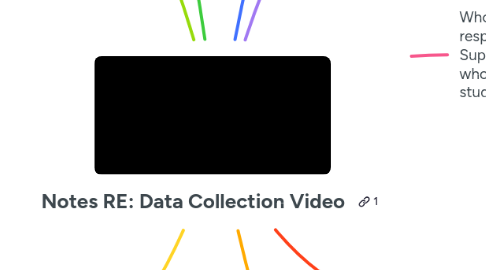
1. Next steps in writing an IEP goal
1.1. If they met their goal, you show the parents in documenations.
1.2. If the child doesn't make progress, they are kind of worthless - and if you don't collect data, the goal is DEFINITELY worthless
1.3. If you're going to use any goal, you have to put the baseline right in the goal. So, you begin with data.
1.3.1. This culd help you write a uselful, realistic goals.
1.3.2. If you aren't going anywhere (in the goal) you have to PIVOT
2. 504 data collection requirements
2.1. the 504 law is only 54 words long!
2.2. OCR finds lact of implementation - so collect data to prove you provided accomodations.
2.3. The law assumes you know what it meant.
3. Q&A Time (only the interesting ones)
3.1. How often should parents get updates on goals?
3.1.1. You should send home at least whenever a child gets a report card, but it could be more frequently. You have to report on EVRY goals the child has in their IEP.
3.2. What about anecdotal data?
3.2.1. Not that great for support. Hard to be measurable. GRAPHS, people! If you can't graph it, it ain't measurable.
3.2.2. Data are numbers, not words
3.2.3. "A teacher's observation is an opinion that cannot be verified."- Justice Roberts
3.3. How many data points before decisions?
3.3.1. You need at least 7 data points to make any decisions
3.3.2. This guy collected data 3 times per week! I am dead.
3.3.3. If you're not doing it at least weekly,you're not doing it enough.
3.4. They are saying that it's bad to take a state standard and write it as an IEP goal. She said that if we expect every 3rd grade student to do it, then it's not special. WHAT?!?!
3.5. Collecting data for Present Levels
3.5.1. Don't use standardized tests?!
3.5.2. Have to be accessible to the parents
3.6. About the "minutes"
3.6.1. It's more about were the minutes efectual rather than "did they get all the minutes prescribed?"
3.7. Can a student receive services outside of school hours? i.e. a child having to drop band so that they can get dsylexia services?
3.7.1. Make sure when you are in these meetings that you get evidence-based data for these decisions.
4. Should you keep data after the student leaves your classroom?
4.1. YES! For at least 2 years. You can keep this yourself in your classroom. You do not have to put it in the due process folder.
5. Is a legal requirement
5.1. Can't show progress if you don't have data.
5.2. "data" isn't in IDEA but progress is.
5.3. Data collection is not to waste your time! It is to help you and to help you help students.
6. Who is the implementer? (everyone responsible? Principal to Superintendent?) but the person who has the most contact with the student as the implementer?
6.1. The general education teacher is the conduit to the education. Should be there with the SPED teacher.
6.1.1. What is your responsibilty if you star monitoring a goal and you see that what you're doing is NOT working?
6.1.1.1. You need to make a curriul or instruction change. Either in the instruction or the goal.
6.1.2. Teachers aren't often encouraged to collect data on IEP goals. That's a school district failing.
6.2. Who is responsible for teaching teachers how to collect data?
6.2.1. The purpose it to write a meanigful goal/meaningful IEP.
7. So... who can collect data??? Anyone?
7.1. No - must be someone who knows how/what they are doing (that doesn't mean that it is complicated)
7.1.1. Where do teachers get blank data sheets for collecting data on student goals
7.1.2. Ther are simple ways of colleting data that's accurate and meanginful.
7.1.3. Data collection is to show if a studnet made progress.
7.1.3.1. Flency is the hardest area of reading to increase.
